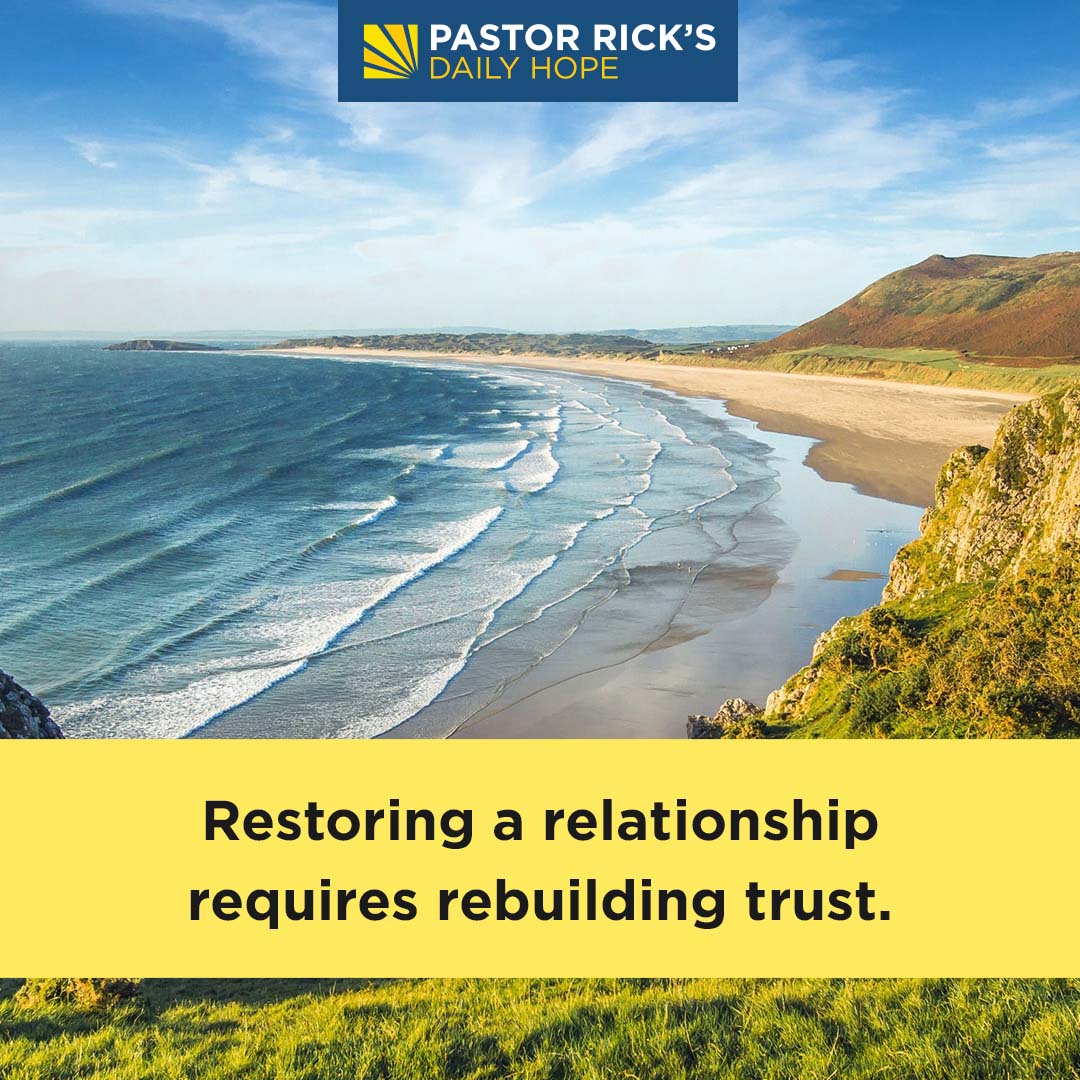How to Restore a Relationship
by Rick Warren — May 22, 2022
From God’s Prescription for a Healthy Life

“So if you are presenting a sacrifice at the altar in the Temple and you suddenly remember that someone has something against you, leave your sacrifice there at the altar. Go and be reconciled to that person. Then come and offer your sacrifice to God."
Matthew 5:23-24 (TNLT)
What do you think about when you think of forgiveness? Do you think forgiving also has to mean just going on with the relationship as if nothing ever happened? It doesn’t—and, in fact, it shouldn’t.
When someone commits a major offense that leads to a break in relationship, forgiveness doesn’t mean resuming the relationship without any changes. In fact, forgiveness and resuming a relationship are two separate things.
Forgiving is what the offended person does. But it’s the offender’s job to do what’s necessary to restore and resume the relationship. Simply saying “I’m sorry” is not enough.
The Bible teaches three things the offender should do to begin restoring a relationship that’s been broken:
Restoring a relationship requires repentance. In other words, you’re truly saddened about what you did. You don’t just say, “I’m sorry.” You say, “I was wrong. I’m sorry. Please forgive me.” You can be sorry that you forgot to run an errand for your spouse or that you accidentally bumped into someone at the grocery store, but bigger offenses require repentance. When you repent, you admit you’re wrong, express true sorrow, and ask for forgiveness.
Restoring a relationship requires restitution. Sometimes you have to make some kind of physical restitution. Even when you’re forgiven, it doesn’t mean you’re off the hook for the consequences of your actions. You may still have to pay a debt to society or to an individual for what was damaged or destroyed by your actions.
Restoring a relationship requires rebuilding trust. Rebuilding trust may take a long, long time. When you’ve hurt someone, ideally that person will forgive you immediately. But they don’t have to trust you immediately. Forgiveness is built on grace and is unconditional; trust has to be rebuilt over time.
Remember, forgiveness and resuming a relationship aren’t the same thing. Let’s say, for example, you learn that a coworker or loved one has repeatedly told lies about you behind your back. When you learn of the offense, it’s time to forgive. But, to resume the relationship, the offender needs to repent, make restitution, and work to rebuild trust.
Have you hurt someone? What do you need to do to begin to restore that relationship today?


Connect with Pastor Rick Warren